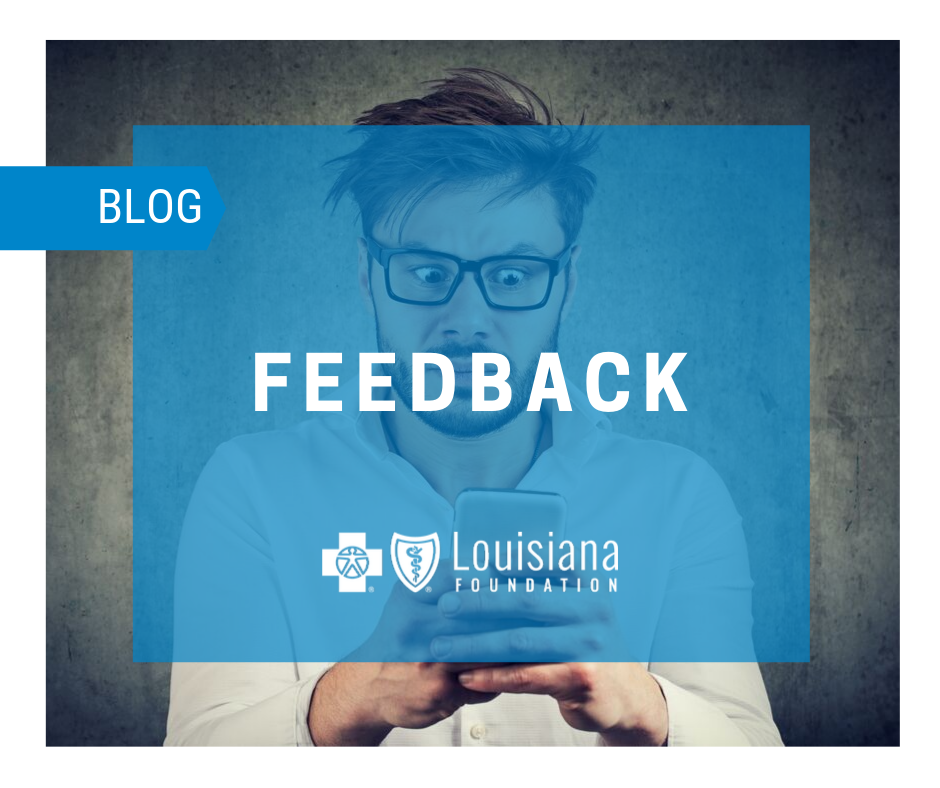As one example, I imagine some number of you opened this message with a bit more anxiety than normal given the title. I know that was the case for me when my colleague Ben and I exchanged initial drafts of this message. I thought he was sending me some feedback based on the subject line – and my stomach tightened up immediately. Researchers have quantified this response:
“Feedback conversations, as they exist today, activate [a] social threat response. In West and Thorson’s study, participants’ heart rates jumped as much as 50 percent during feedback conversations. (Equivalent spikes have been found during some of the most anxiety-producing tasks, such as public speaking.) In their self-assessments, participants reported feelings that mirror what just about everyone has experienced personally: nerves, uncertainty, and anxiety. All this physiological stress has the unfortunate effect of draining a person’s mental resources.”
Nevertheless, it’s necessary. A lot of what gums up the works of getting problems truly solved seems to lurk in the grey spaces where you need me to do something different, but you’re afraid to tell me and I’m certainly afraid to hear it – so maybe we avoid it altogether. Often that proves particularly true in organizations trying to solve tricky community problems – the problem being solved is complicated, our resources are insufficient, our colleagues are passionate and working so hard – so we can’t quite muster the courage to face down the fear of feedback and change despite the fact that it may be helpful or needed.
Here’s a useful checklist from the Daring Greatly curriculum of when it’s time to give feedback. I think it’s a useful guide to keep conversations on the rails, and framework for keeping all parties focused on what’s productive.
I know I’m ready to give feedback when:
- I’m ready to sit next to you rather than across from you.
- I’m willing to put the problem in front of us rather than between us (or sliding it toward you).
- I’m ready to listen, ask questions and accept that I may not fully understand the issue.
- I want to acknowledge what you do well instead of picking apart your mistakes.
- I recognize your strengths and how you can use them to address your challenges.
- I can hold you accountable without shaming or blaming you.
- I’m willing to own my part.
- I can genuinely thank you for your efforts rather than criticize you for your failings.
- I can talk about how resolving these challenges will lead to your growth and opportunity.
- I can model the vulnerability and openness that I expect to see from you.
The right feedback can absolutely be tough to give, and tough to hear – but it can change things completely. And when we are in the business of solving big problems, we need to find ways to welcome and leverage that feedback to move things forward.
What’s the best feedback you’ve received? And how did it move you and your work forward? Is there some feedback you need to give our team? Let us hear from you and together lets leverage our feedback to help make Louisiana happier, healthier and stronger in the years to come.
– Michael Tipton
President, Blue Cross and Blue Shield of Louisiana Foundation
Head of Community Relations
michael.tipton@bcbsla.com
Subscribe to our mailing list
